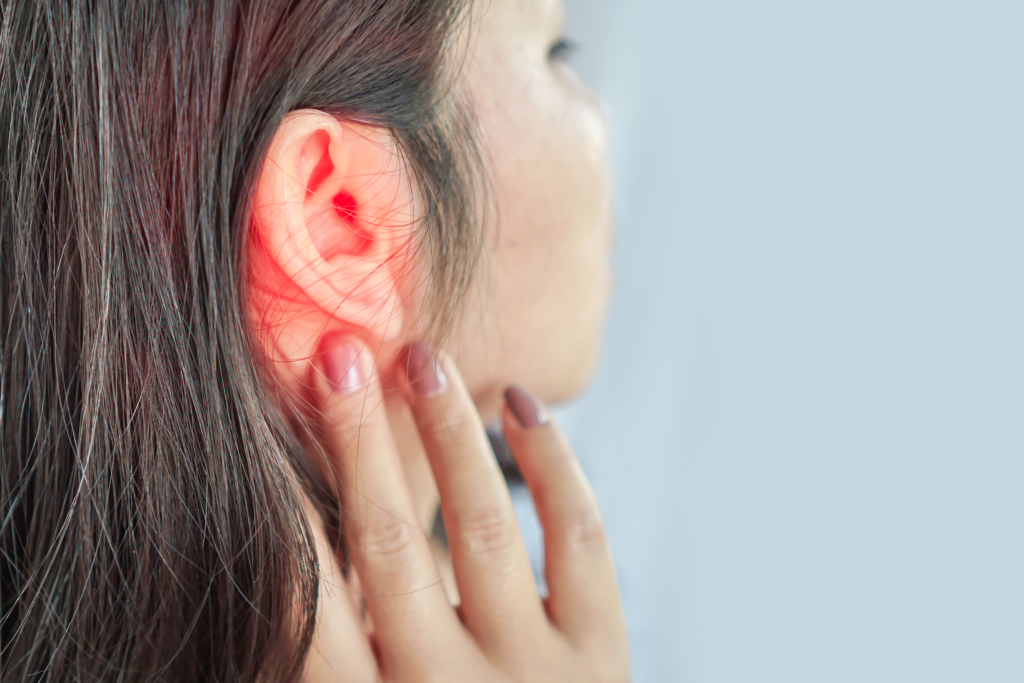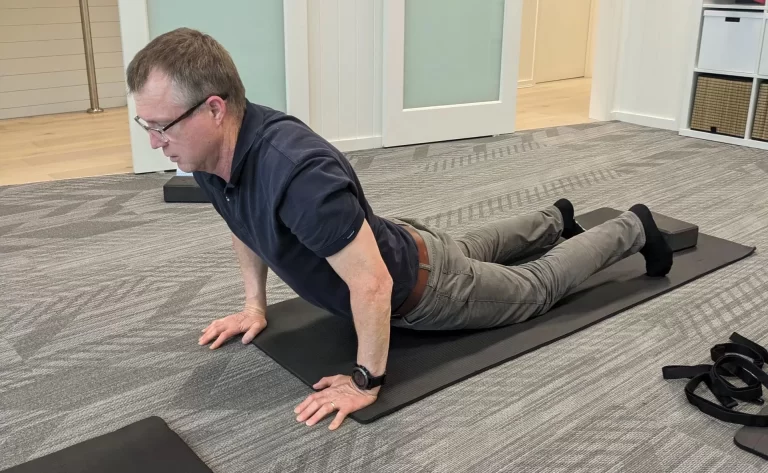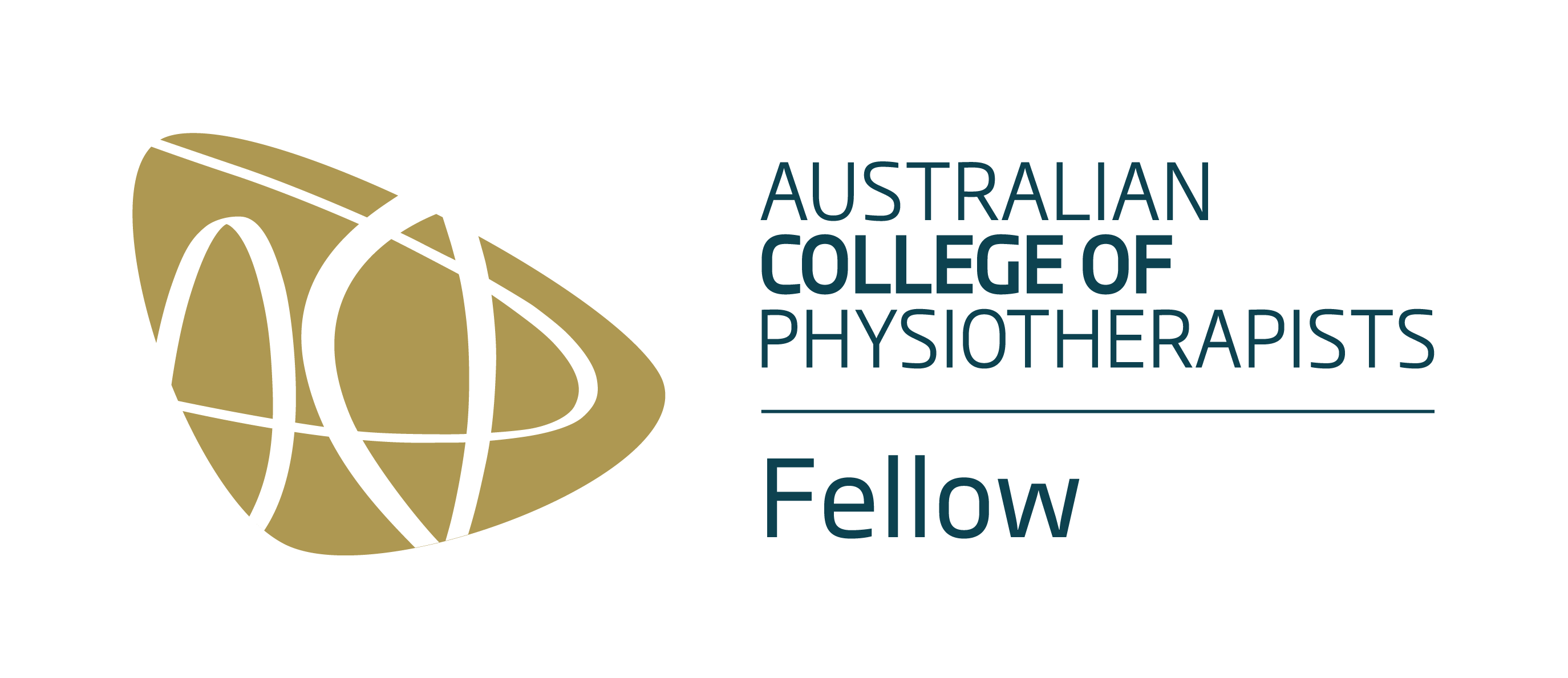An earful of ringing noise. Tinnitus is not music to anyone. Find out what you can do to take control and get relief from tinnitus.
Harnessing your neck joints and nerve system can calm tinnitus

Tinnitus is the phantom perception of sound without the activity of the inner ear, or cochlea. It is absolutely real and not imagined. Neural activity in the brain is responsible and neuroscientists are sleuthing where exactly at the time of writing. And it may also be accompanied by poor sound tolerance. That means a little bit of noise is too noisy! Think of the hearing nerve system dealing with interference and possibly working in an overdrive or amplified setting. Where is the volume dial on this?
This unwanted phantom rings on the door of many age and lifestyle groups and is estimated at 10% of the population (1). It is more common in older age groups of people. People with similar descriptions of their tinnitus can be affected in completely different ways by it. For some it is a minor nuisance and that amount of disturbance may vary. For others it is an all consuming disruption to their life. It's more than a nuisance.It disrupts concentration, impedes work performance, and even affects sleep quality. Picture this: trying to focus on a conversation while a persistent ringing interrupts every word—a scenario all too familiar for those living with tinnitus.
Types and Causes of Tinnitus
There are many types of tinnitus with various causes and determining the driver is key to finding the right tinnitus treatment for you. A change in blood flow, inner ear workings or muscles can be ‘conductive’ causes. Secondly the sensory or nervous system can play up and provoke tinnitus. This is sensorineural tinnitus (2). This is a very brief overview of the classification and the references provide more detail. The tinnitus can also have several sources.
Various triggers to tinnitus include exposure to loud noises, ear infections, certain medications, underlying health conditions like high blood pressure, neck or temporomandibular joint (TMJ) disorders, and heightened stress levels. Understanding these causes is crucial in tailoring effective management strategies(3).
What’s more, it is vital to consider causes that require medical attention. It could be something as simple as earwax blocking the eustachian tube, a neurological condition such as Ménière’s disease, an infection or a tumour. The worst case scenario will not necessarily be the culprit. It is important to get an informed clinical opinion about what is going on and what your next steps should be.
It isn’t just you, tinnitus is commonplace and scientists found that if you put almost everybody in a room isolated from any external noise, people will hear some sort of noise (4).
There are two things to do. First get your tinnitus assessed with your General Practitioner and an Audiologist to rule out causes that require their care, and have the right layered approach for treating your tinnitus. For some type of tinnitus these professions work with us to help you. Secondly, does the tinnitus alters with movement, position or exercise? Stress levels can be an influence for some with their tinnitus as well. You may not be sure but getting a thorough assessment with us as well, can give you an entry to clinically useful treatments.
The Link Between the Neck, the Brainstem and Tinnitus.
Emerging research highlights intriguing connections between tinnitus and the cervical spine (the neck segment of the spine) and the trigeminocervical nucleus in the brainstem. This nucleus is a part of the nervous system that serves as an information intersection between the neck, jaw, head and auditory system (5). If that junction box is not working properly, any tension or motion control issue in the neck or jaw joints may contribute to the onset or exacerbation of tinnitus symptoms (that phantom noise).
Another culprit for some tinnitus sufferers is a muscle in your inner ear, called the tensor tympani muscle. It pulls the inner ear’s mechanical levers that work as part of the startle reflex and tighten the eardrum. If that protective neural drive is heightened, this muscle can be overactive, driving the hearing change for some tinnitus sufferers.These correlations shed light on potential avenues for relief through targeted therapies addressing muscle, joint and nerve system problems.
Physiotherapy / Osteopathy Role in Tinnitus Relief
Enter physiotherapy / osteopathy—a beacon of hope for many grappling with tinnitus. Our trained clinicians assess cervical spine health, posture, muscle tension, and movement coordination issues. Tinnitus physios understand bodily structures with common connections to the trigeminocervical nucleus, such as the neck, jaw joints and associated muscle and soft tissue can up-tick the neural activity behind tinnitus.
Through manual therapy, tailored exercises, and relaxation techniques, our physios and osteopaths can alleviate tinnitus symptoms by addressing underlying musculoskeletal contributors. This also includes Neural Tapping.
Neural Tapping: A Promising Modality
One promising modality gaining traction in tinnitus management is neural tapping. This technique involves gentle stimulation or tapping of the head, neck and other body parts that directly stimulate respective brain areas related to tinnitus . These very specific areas of the brain are closely linked to centres of perception of pain/uncomfortable noise, learning and emotions. By retraining the brain's response to auditory stimuli, neural tapping (6) offers potential relief for those experiencing persistent tinnitus symptoms. This therapy is useful for many sufferers, is easily learnt and applied. It can be a useful combination with other techniques we use and those of an audiologist, as part of Tinnitus Retraining Therapy.
In conclusion, while that phantom called tinnitus poses challenges, understanding its complexities and exploring innovative approaches used by our clinicians including manual therapy, specific exercise and neural tapping holds promise for effective management. If you're struggling with tinnitus, seeking guidance from our specialist clinicians could mark the beginning of your journey towards relief and improved quality of life.
At our clinic, our experienced clinicians and our specialist musculoskeletal physiotherapist work in tinnitus management. Book an appointment today to book a physio for tinnitus treatment. Contact us to learn more about how we can help you on your journey towards tinnitus relief.













